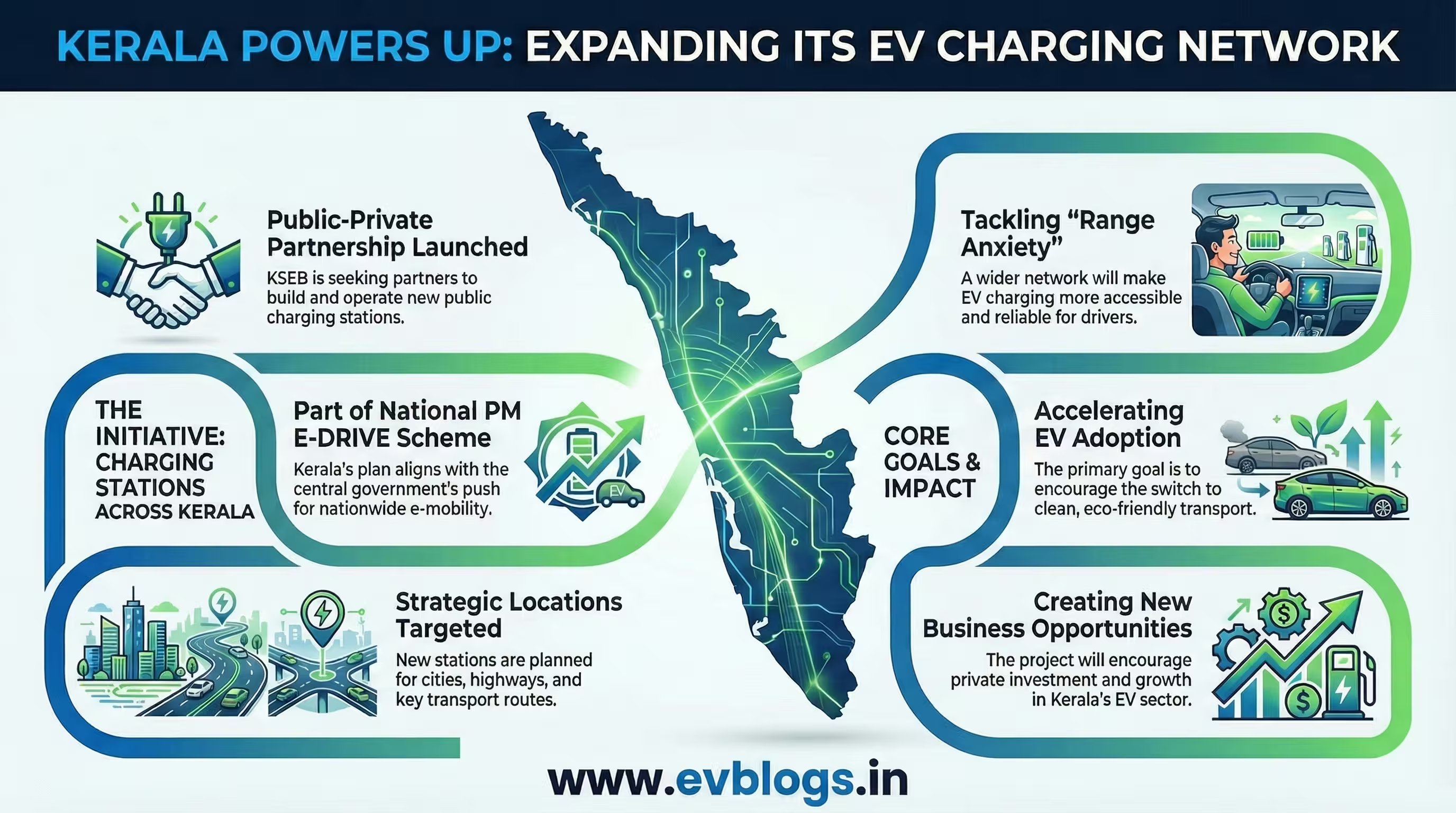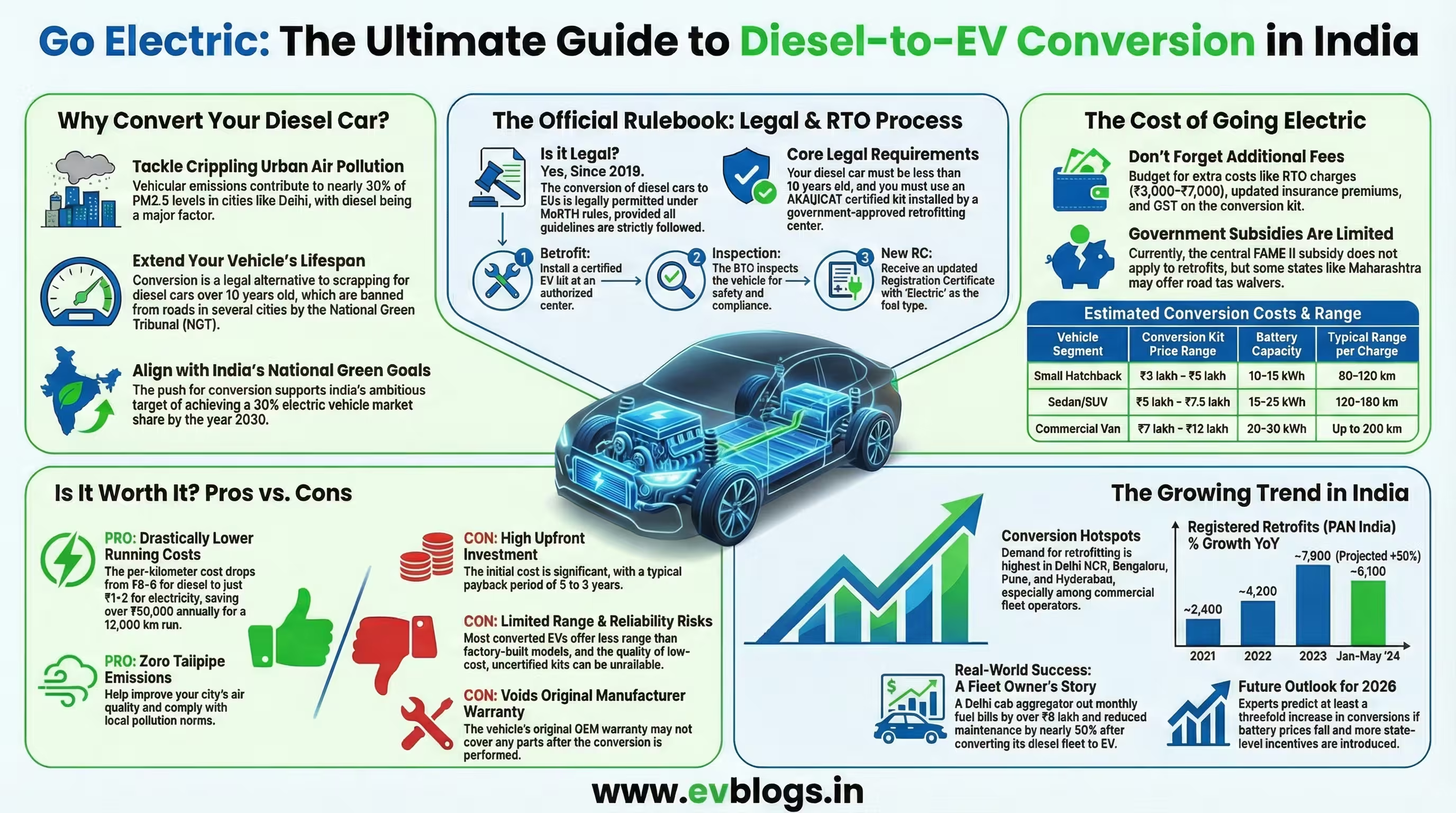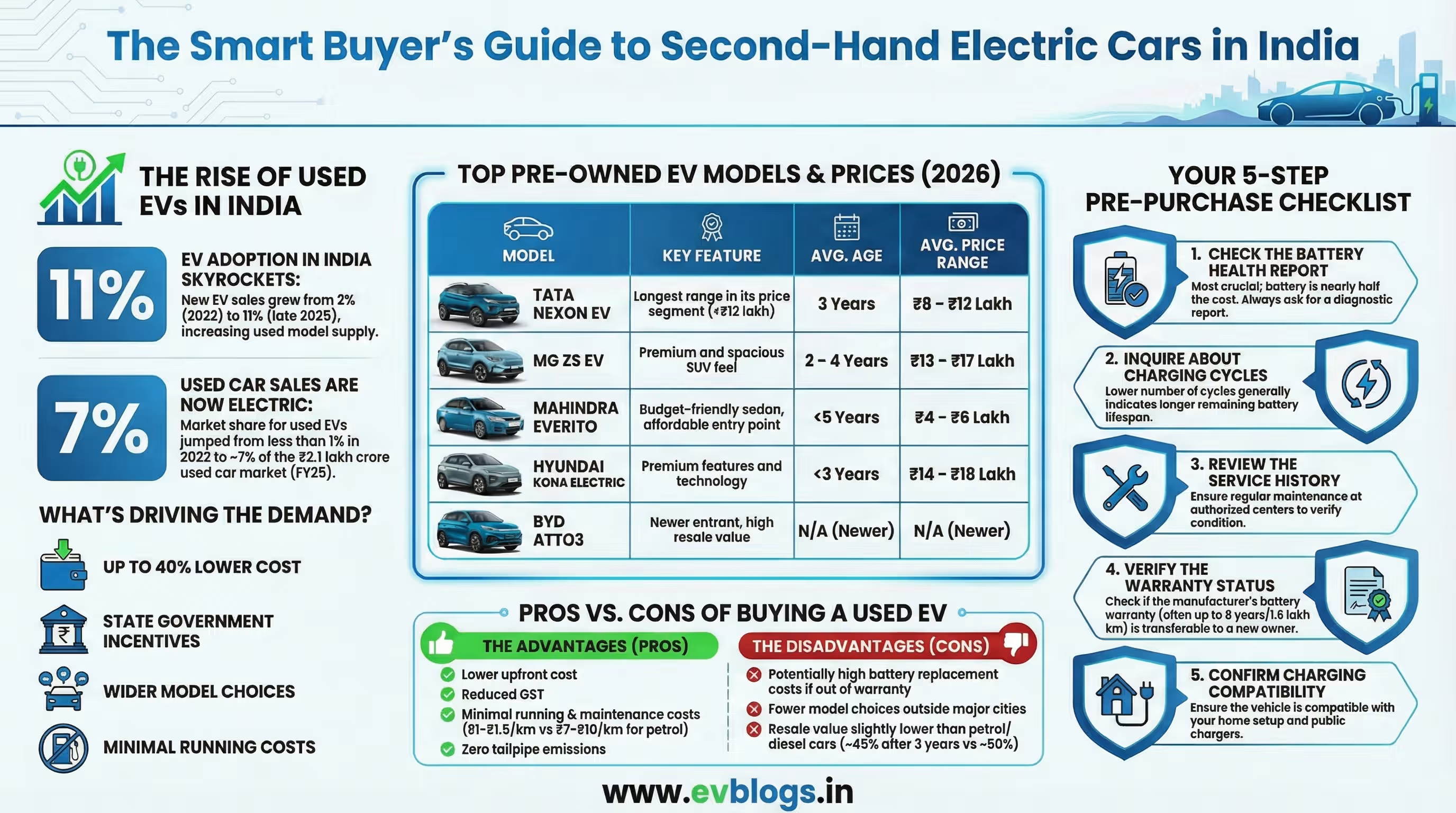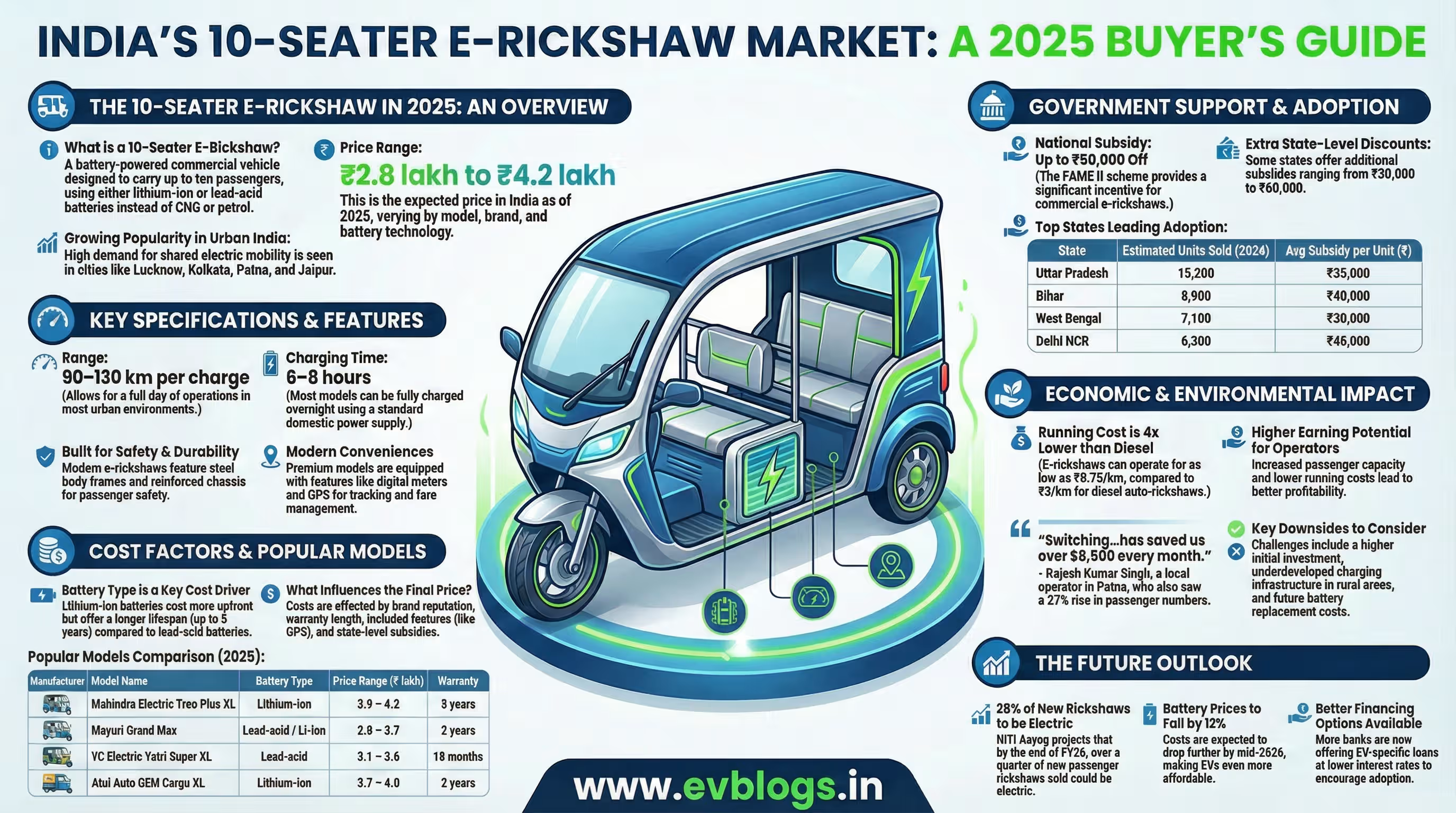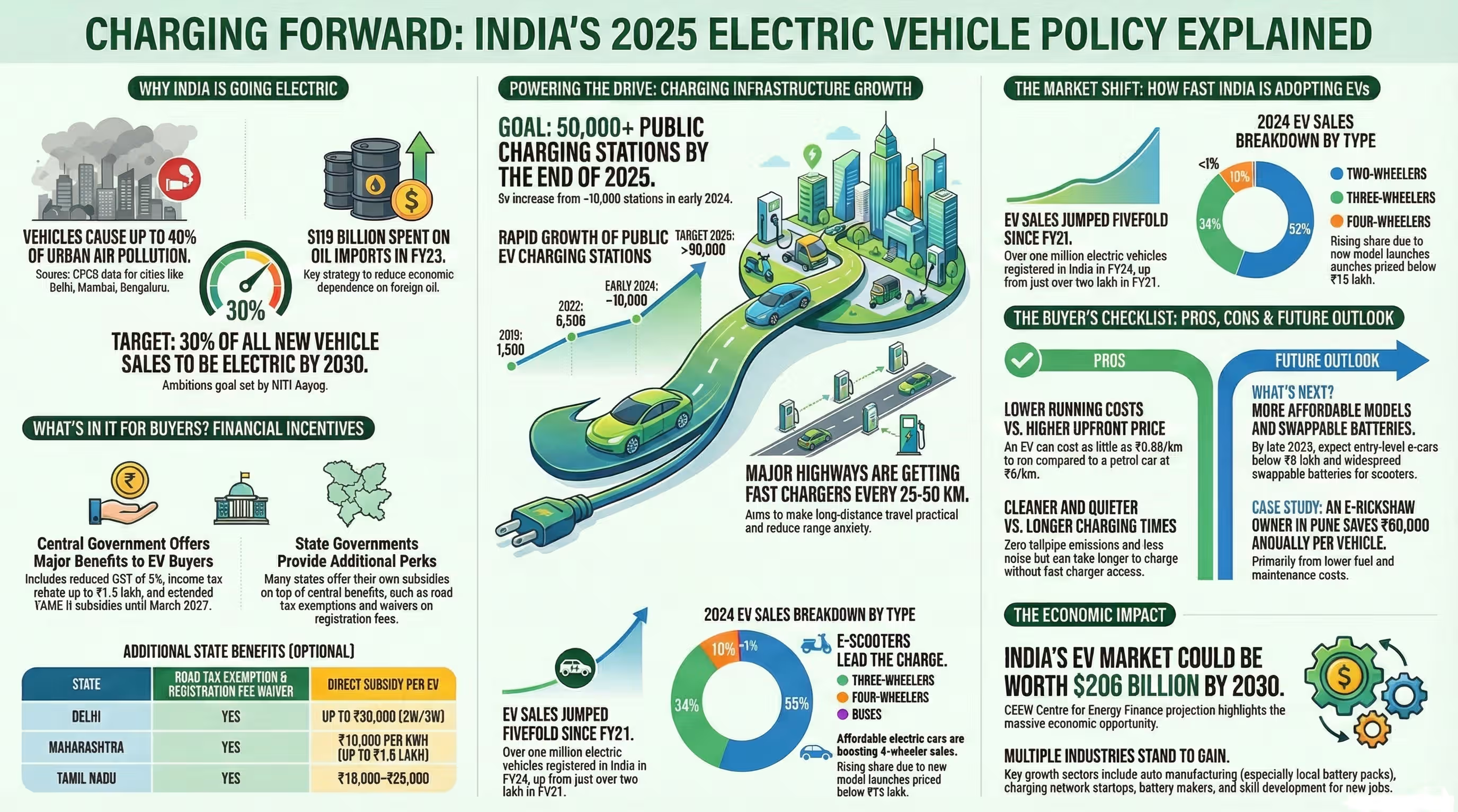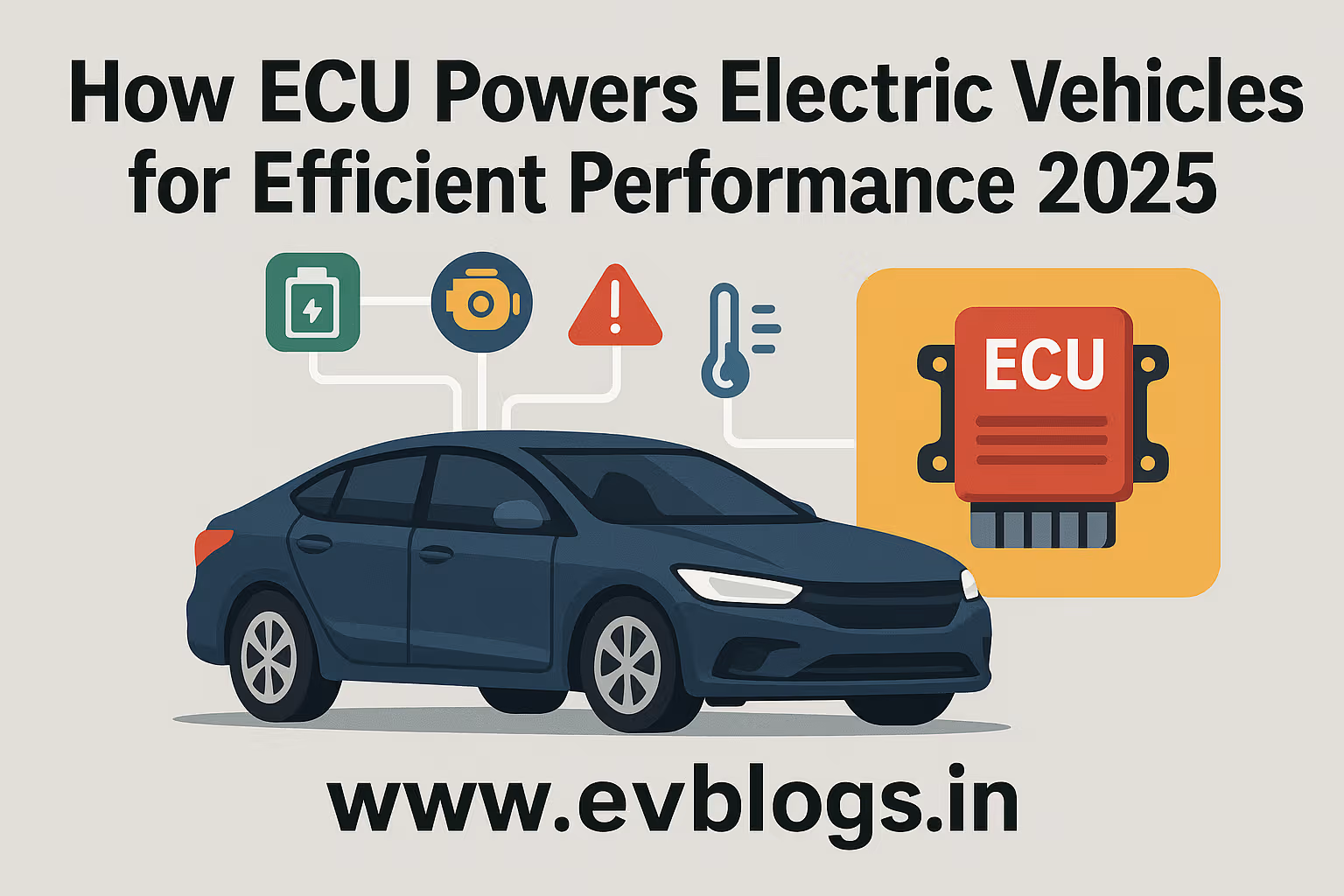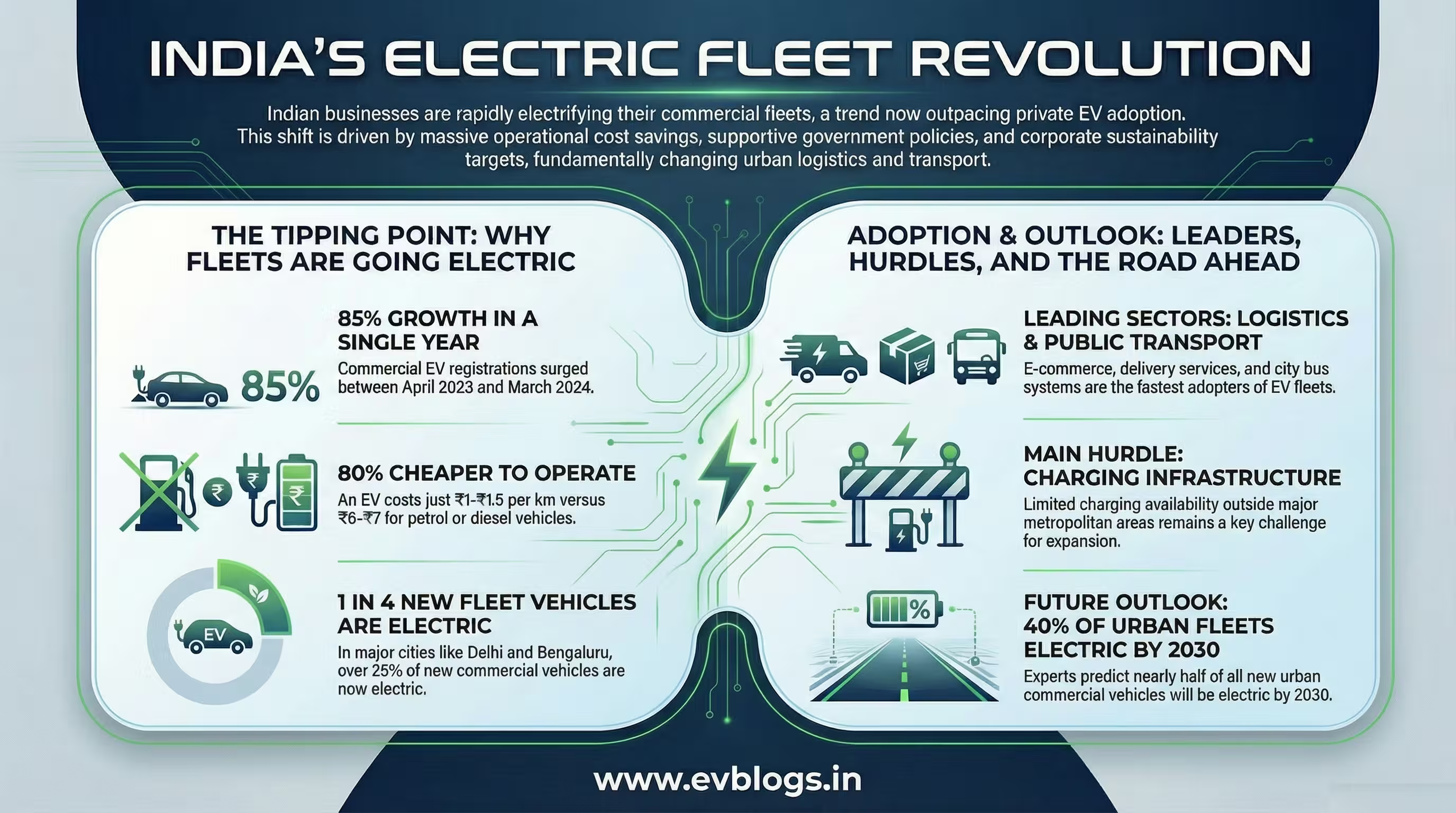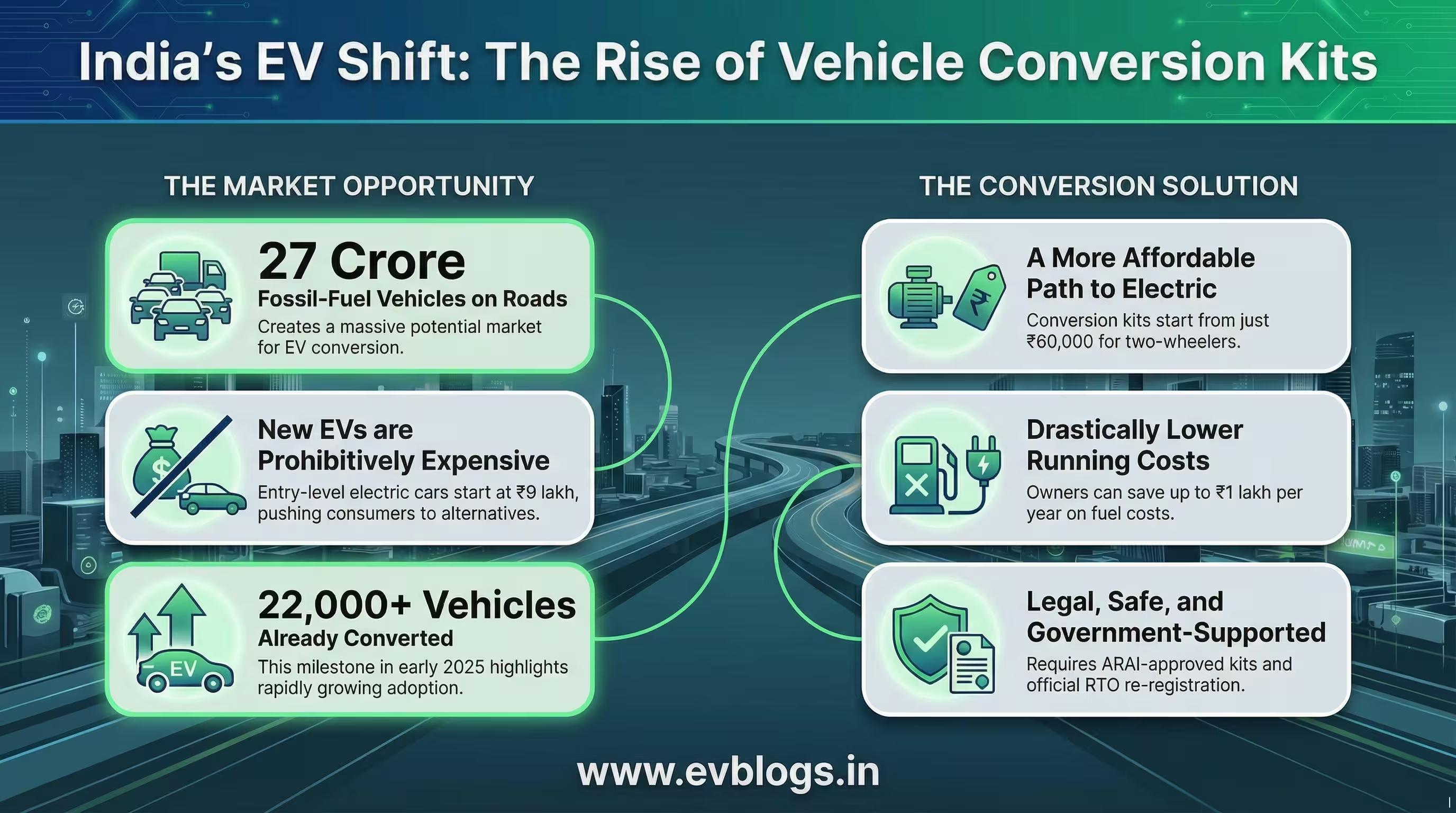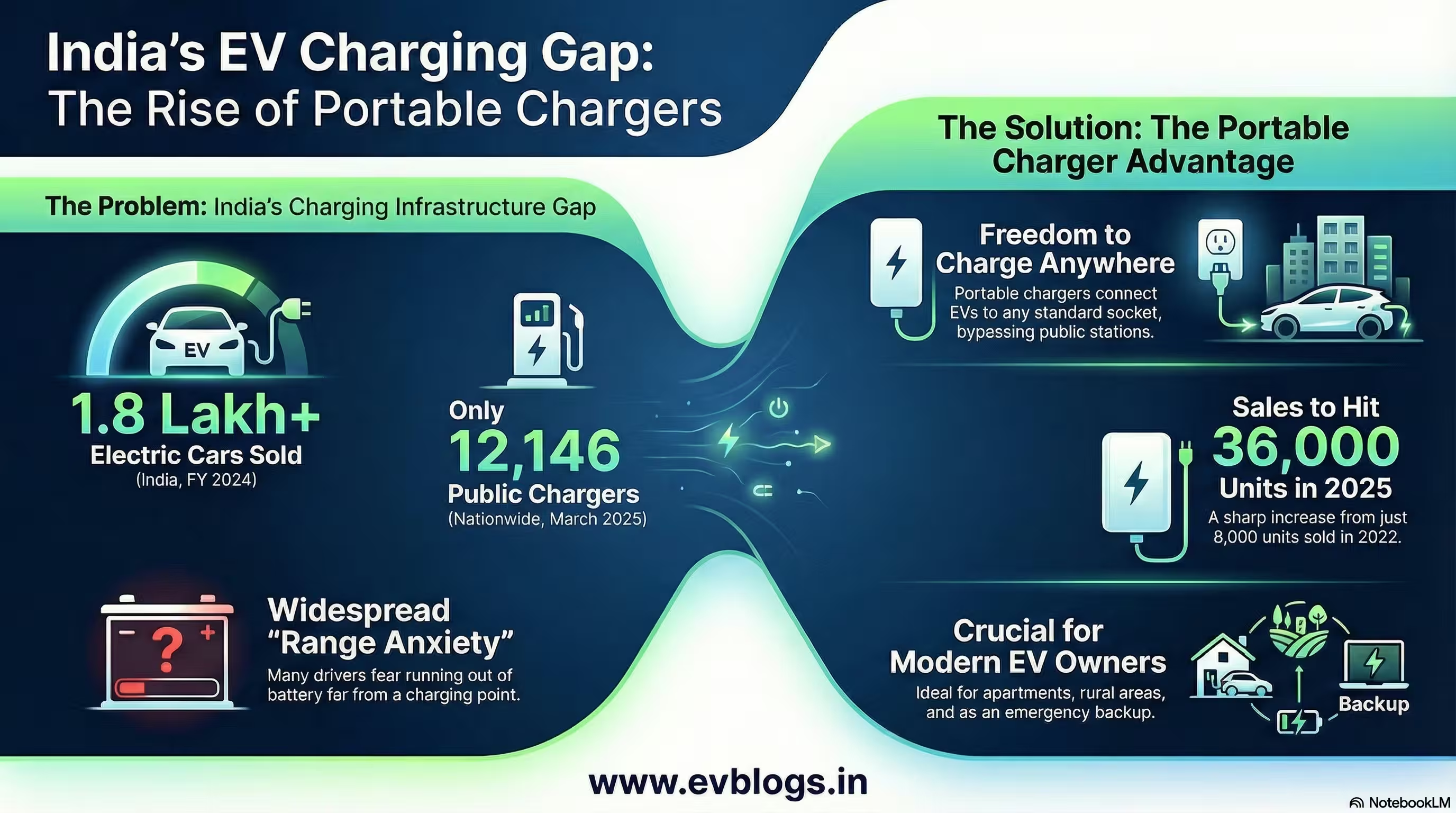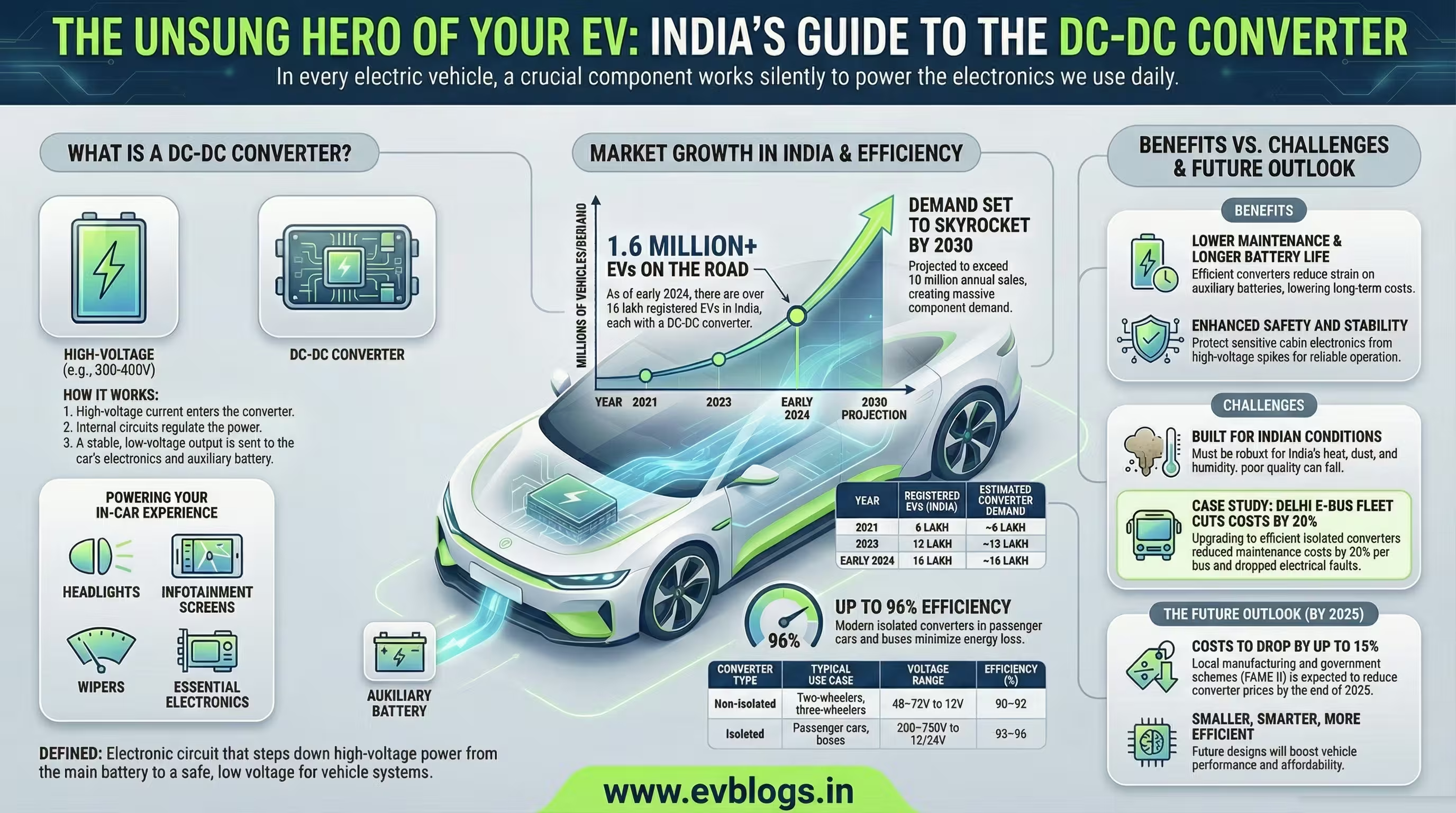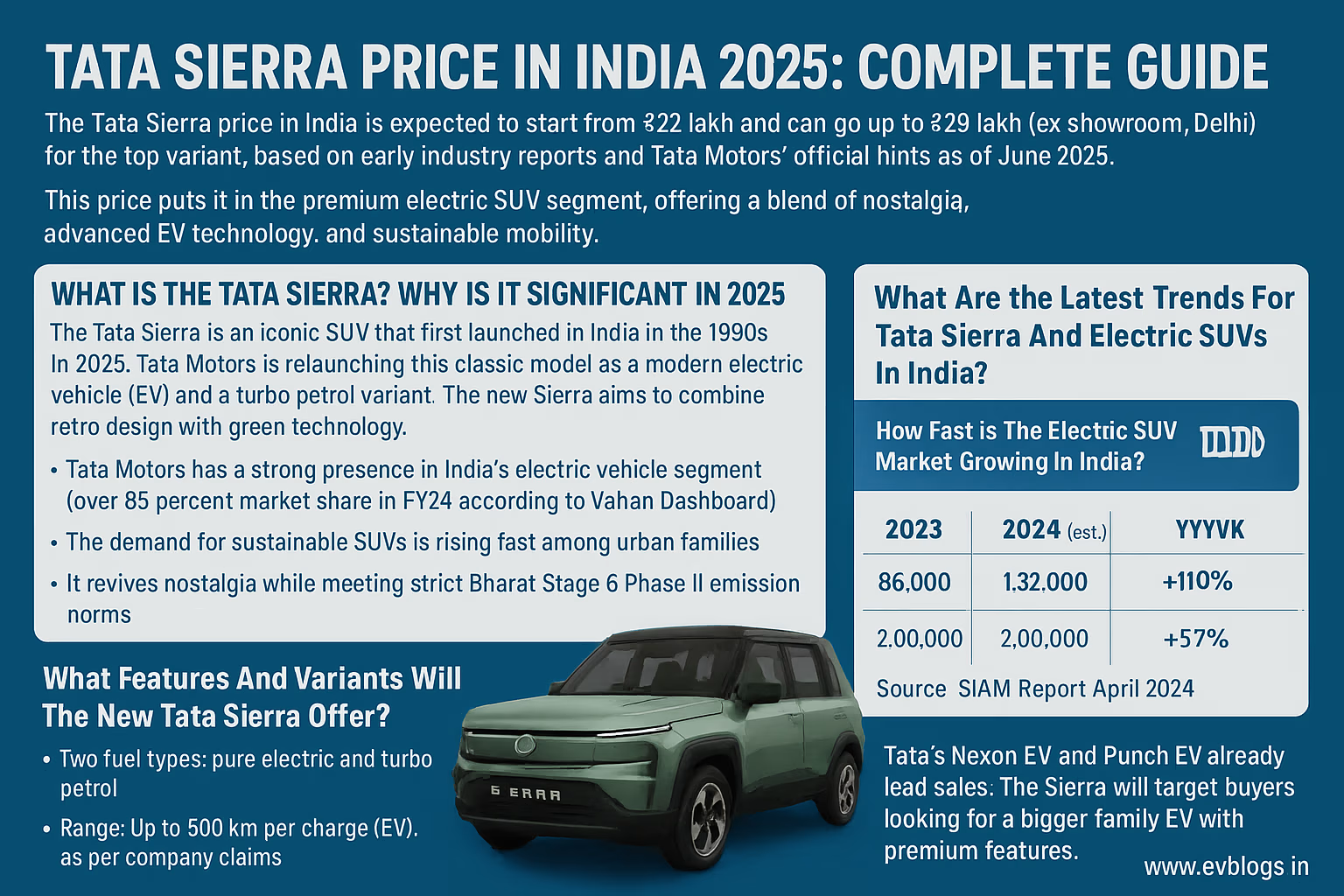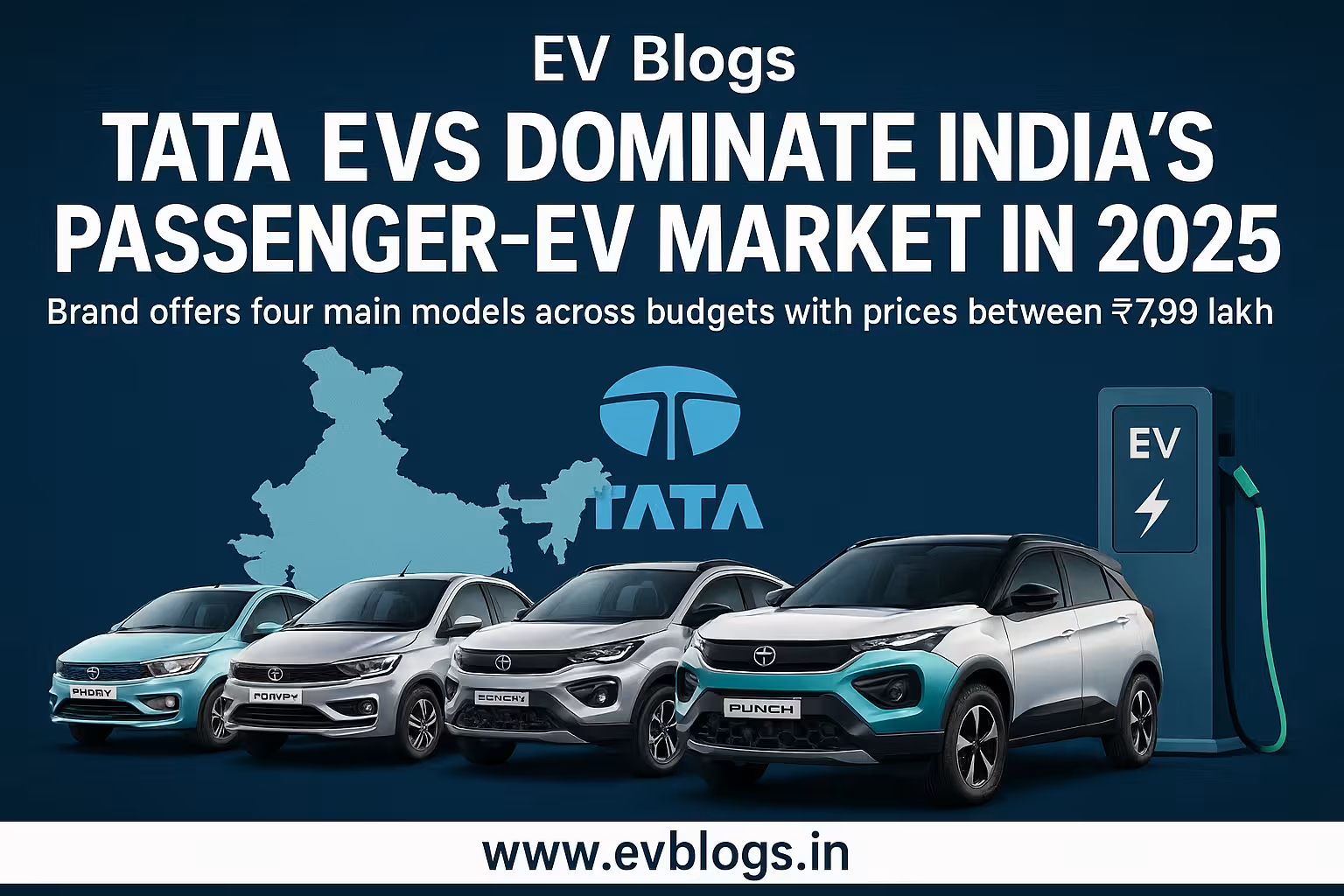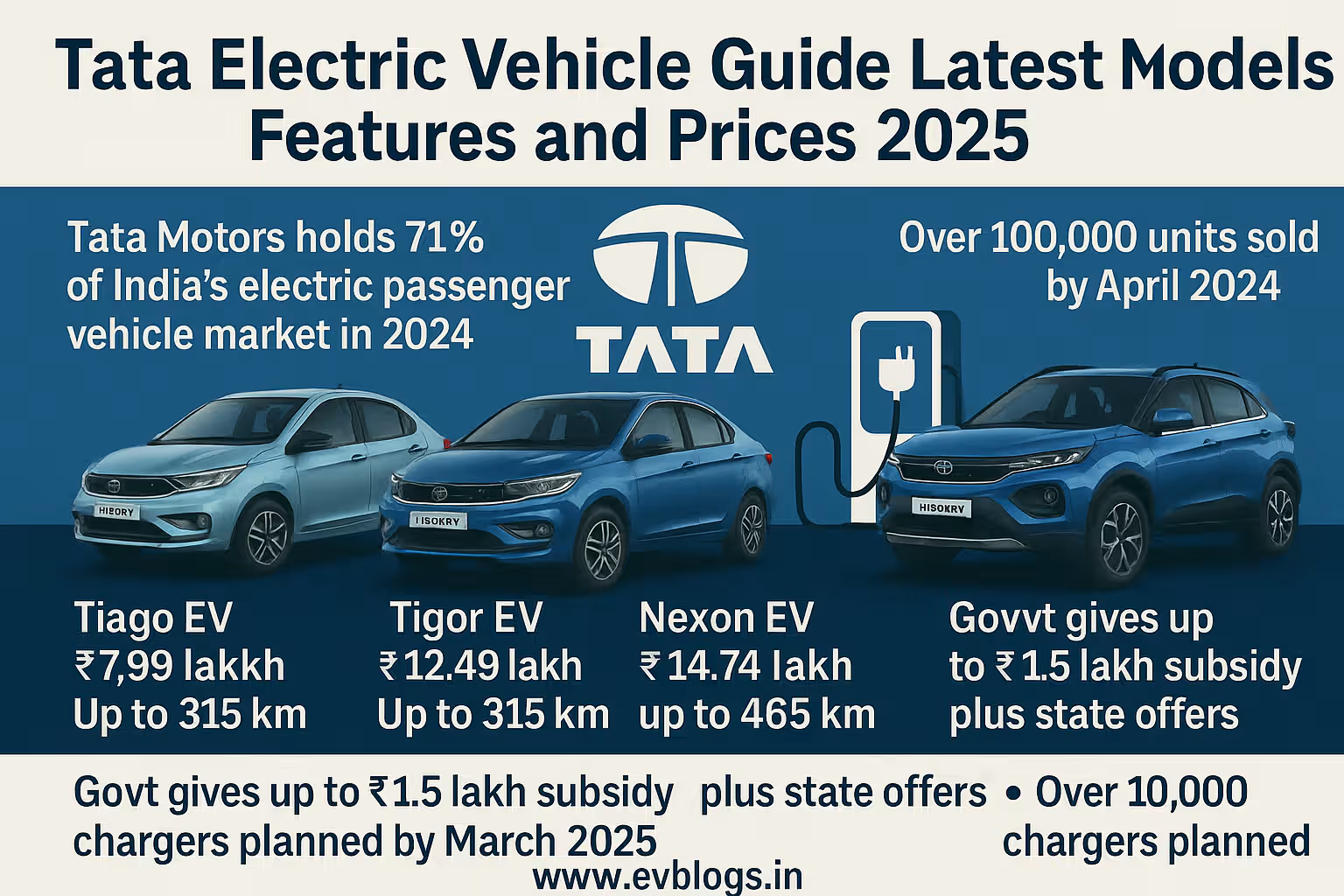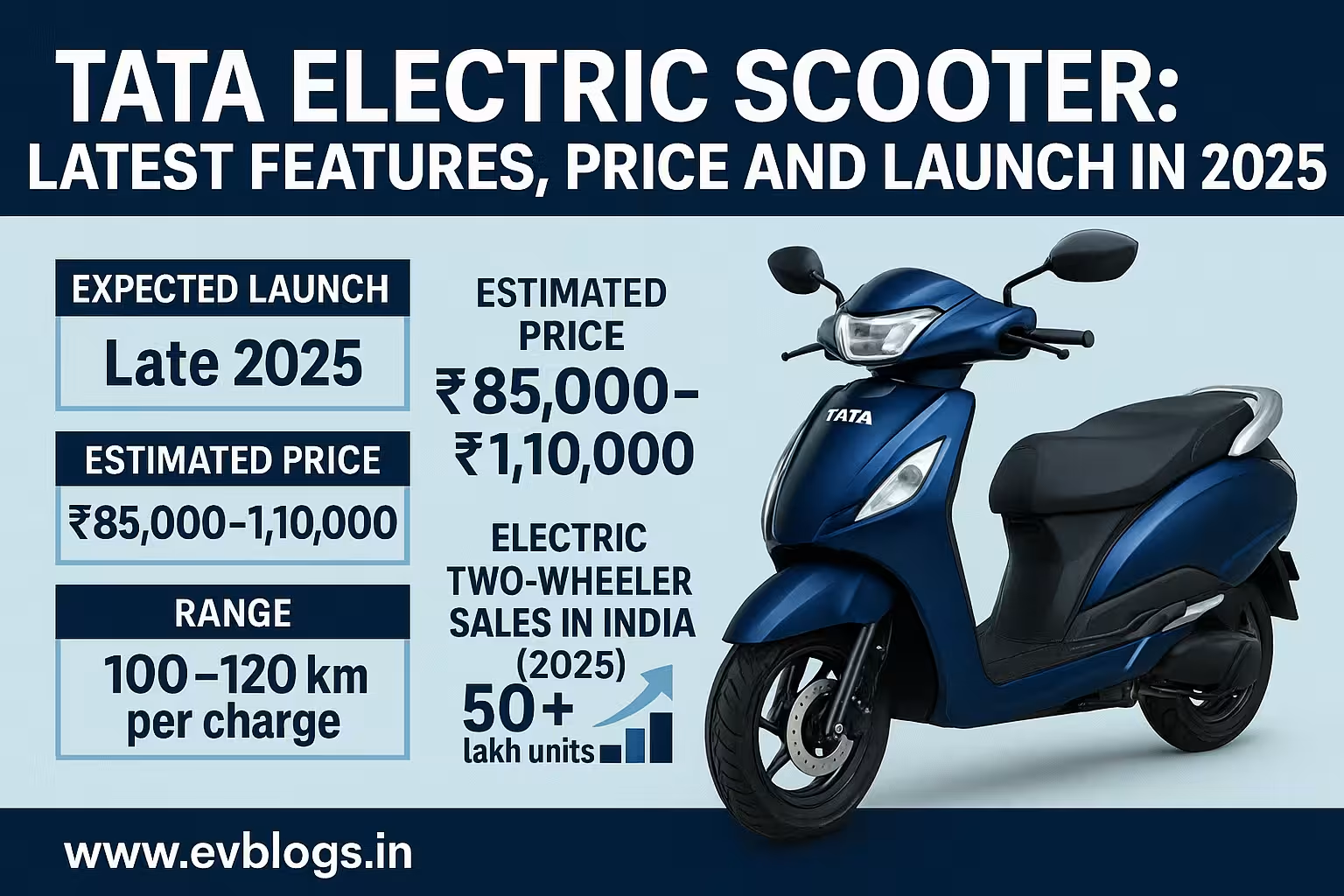Hedhvick Hirav
Hedhvick Hirav is a dedicated EV researcher and editor with over 4 years of experience in India’s growing electric vehicle ecosystem. Their contributions have been recognized in leading sustainability publications and automotive journals.
Summarize & analyze this article with
Choose an AI assistant and open this article directly:
Tip: if the AI doesn’t fetch the page automatically, paste the article URL manually.
What are Electric Cars and How Does it Work?
The electric cars in India are those cars which use electricity as the source of energy as compared to the normal use of petrol or diesel engines as their source of energy. Such batteries are recharged with the use of external electricity sources at home chargers and in charging stations in the streets. By 2025, it is becoming popular in Indian cities to see people use electric cars due in part to the rising fuel prices and regulations on emissions and improvements to the charging system.
Electric cars are motored on liquid batteries and lithium-ion car batteries.
You will have instant torque and this equates to a seamless acceleration.
They need less moving parts, less maintenance and practically silent operation.
The EVs in India have 120 km to -> 600 km travel on a single charge in 2025.
Nonerasable Positives to the Indian Users
- Bearing upper costs more than petrol and diesel powered cars.
- One will have fewer parts to modify, hence reduced hustles at the workshops.
- Zero emissions through the tailpipe that will support the poor quality of air issues, affecting India.
You charge an EV such as in India:
- At home, using regular power point (6-8hours), or a special wall box electric connector (3-6hours).
- With publicly available fast-charging points, charge-up times may be as short as half an hour to eighty per cent (again depending on the car and fabric of the charger).
Expert Insight:
Have you ever heard about battery pack costing anything up to 30-40 percent of electric vehicle cost alone? The declining prices of EVs can be attributed to the technological progress of battery technology that is reducing the prices of the battery almost every year and may contribute to the feasibility of the EV models becoming affordable to an Indian customer.
So what is special about 2025 as the year when people will possess the electric cars in India?
And perhaps the question you are posing yourself is why so much is being said about an EV revolution or electric mobility goals every time you look up. A lot of factors in the forecasted 2025 year, are on the rise in bringing up the quantity and utilization of electric cars in India.
- Petrol and diesel prices are very high and this has an impact on the family budgets.
- The Indian government offers some incentives, which include high subsidies (FAME-II), low GST (5% on EVs, compared to 28% on ICE), government benefits available at the state level in the form of road tax waivers etc.
- India New Delhi has also fronted a challenge under which EVs must comprise a minimum of 30 percent of the new car purchases by 2030.
The primary Motivators in Indian Electric Cars Mythic-ism
- Air pollution that now occurs in the cities is a severe issue; the transition toward resolution is led by such cities as Delhi, Mumbai, and Bengaluru.
- Aware of the global warming and carbon foot printing in the Indian families and young generation.
- Improved EV infrastructure: at present, the number of charging stations exceeds 13 thousand (as of February 2025).
- Automobile companies are introducing cheaper models that are fit to Indian environment.
- Other towns offer EVs special parked benefits and toll users benefits.
Case Study:
Priya in Hyderabad switched to the use of an electric vehicle in the year 2024. First of all, I did not believe in the range and recharging. But it is saving me half what I was spending on fuel in my old petrol hatch back, now my rides to office are also deliciously silent and guilt free!
It will be proposed to you to map out your stop and route.
The reduced fuel expenses and maintenance bills provide the Indian buyers with a chance to save up to 2.5 lakh in the course of five years, in the event that they choose an EV.
Whose electric Carmakers Are The best and most popular in India (2025)?
Now, few years after, you may select much more: small town automobiles to luxurious SUVs.
Avocado India versus the Electric cars India
| Brand | Model | Price (ex-showroom) | Battery Capacity | Battery Range | Fast Charging Time | Featured Practicality+ Weight |
|---|---|---|---|---|---|---|
| Tata Nexon EV | 14.74 lakh | 465 | 56 mins | The EV is sold at Intrac City and Highway | ||
| Tata Tiago EV | 7.99 lakh | 315 | 24 | 58 mins | The lowest price EV in India - City Commutes | |
| Tata Punch EV | 10.99 lakh | 421 | 35 | 56 mins | Punch EV: small size SUV of feature and family utility | |
| MG Comet EV | 6.99 lakh | 230 | 17.3 | 57 mins | Urban Mobility - ultra small | |
| ZS EV | 18.98 lakhs | 461 | 50.3 | 59 mins | On intercity + city premium SUV feels | |
| Mahindra XUV400 EV | 15.99 lakh | 456 | 39.4 | 50 mins | Boot, decent cross, looks Families | |
| Hyundai Kona Electric | 23.84 lakh | 484 | 39.2 | 57 mins | ||
| BYD Atto 3 | 33.99 Lakh | 521 | 60.5 | 50 mins | Longest real world range Road Trips | |
| BYD e6 | 29.15 lakh | 520 | 71.7 | 70 mins | gear room/network Fleet / Taxi | |
| Citroen eC3 | 11.60 lakh | 320 | 29.20 | 53 mins | French city families | |
| Hyundai Ioniq 5 | 45.95 Lakh | 631 | 72.6 | 18 Mins (ultra-fast) | Luxe Seekers |


